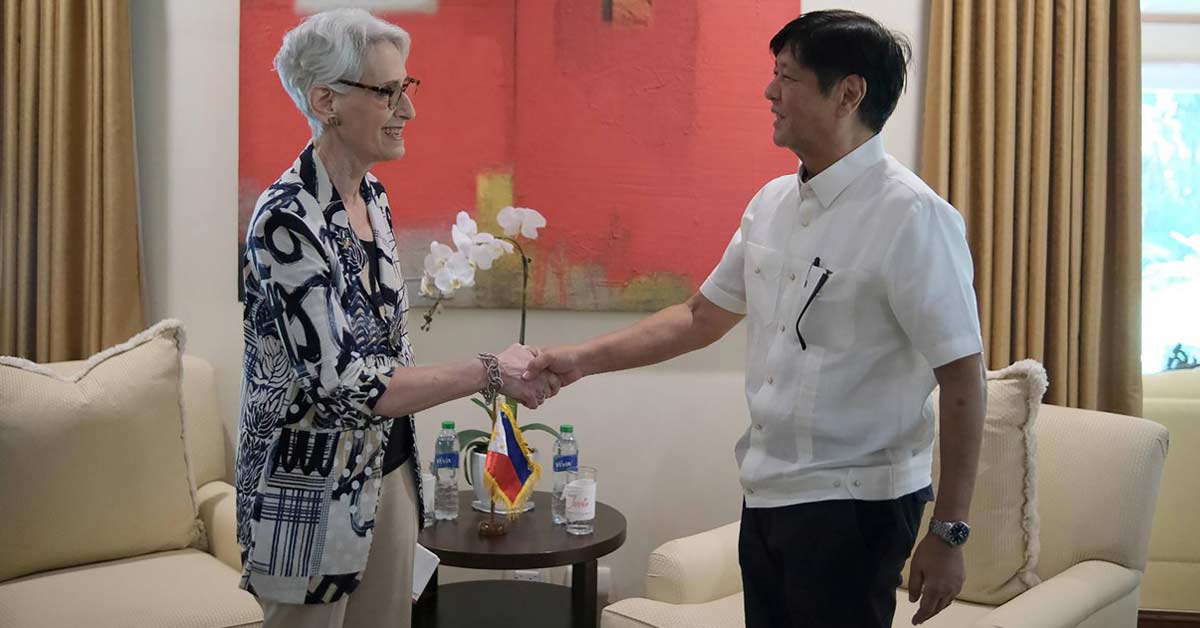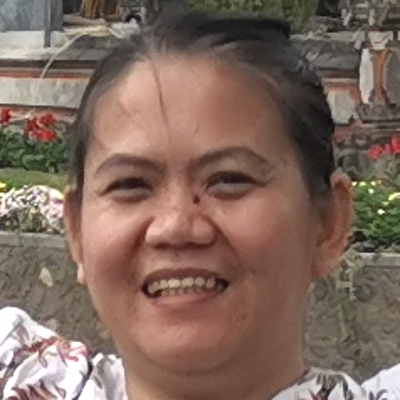As part of the commemoration and celebration of the 47th Anniversary of the founding of official diplomatic ties between the Philippines and China, and the 21st Anniversary of the establishment of Philippines-China Friendship Day, the formal Award Ceremony of the Award for Philippines-China Understanding (APPCU) this year (2022) was held on 10 June.
It was attended by not only the Board Members of the Association for Philippines-China Understanding (APCU) led by its Chairman Emeritus, Former President Gloria Macapagal-Arroyo who delivered a recorded video message for the momentous occasion, APCU Chairman Secretary Raul Lambino, and APCU President Jeffrey Ng; the officials of the Embassy of the People’s Republic of China in the Philippines led by the Ambassador of China to the Philippines, Ambassador Huang Xilian; the 10 APPCU 2021 Awardees, the 11 APPCU 2022 Awardees, including former President Joseph Ejercito Estrada, one of the two Hall of Fame Awardees this year, but by no less than President-elect Ferdinand “Bongbong” Marcos Jr., other dignitaries and both incoming and outgoing government officials.
The Association for Philippines-China Understanding (APCU), a non-government organization (NGO) based in the Philippines, is a pioneer and leading NGO in the Philippines for promoting people-to-people diplomacy, bilateral/mutual understanding, and friendship between the Philippines and China.
In 2021, the APCU launched two important projects which further help promote mutual understanding, friendship, and cooperation between the two countries and peoples. These projects are the Manila Forum for the Philippines-China Relations and the Award for Promoting Philippines-China Understanding (APPCU).
The APPCU pays special tribute to Filipinos who have made efforts through time to strengthen friendly ties and promote mutual understanding between the Philippines and China using their respective advocacies and expertise in the various fields and disciplines of Mass Media and Public Service; Trade and Commerce; and Arts, Culture, and the Sciences.
The primary rationale behind launching these two projects is to actively promote friendship between the Philippines and China and enhance people-to-people exchanges, noting that amity between people holds the key to sound state-to-state relations.
APPCU 2022 Awardees
After the successful launch of APPCU, the APCU and the Chinese Embassy in the Philippines launched the second year of APPCU in January 2022. Members of the board and the committee behind APPCU have endeavoured to streamline its search for well-deserving individuals for recognition of their efforts and contributions in fostering and promoting understanding, appreciation, and the reinforcement of amity between the Philippines and China.
This year, 10 public and private sector individuals passed the three-stage selection and judging process from a list of nominees beginning the early quarter of this year. Their works' prestige, nature, and extent are essentially the basis for identifying their respective award category.
The organizing committee of the APPCU also extended a Special Award, the Gawad Sultan Paduka Pahala, to the late Philippine Ambassador to China, His Excellency Jose Santiago “Chito” Sta. Romana.
This year’s APPCU Hall of Fame awardees are Former Philippine President Joseph Ejercito Estrada and former Ambassador Extraordinary and Plenipotentiary to the People's Republic of China, Ambassador Francisco Benedicto. The awardees for the APPCU Outstanding Contributions are the Honorary Chairman of Anvil Business Club, Board Member and Chairman of FFCCCII Public Information & Media Committee, and Moderator of Pandesal Forum at 83-year-old Kamuning Bakery Café, Wilson Lee Flores, Manila Standard Columnist and Contributor of China Daily Global Edition, and Global Times, Rodrigo “Rod” P Kapunan, Manila Times Columnist and book author, Mauro Gia Samonte, and the President of Philsilat Sports Association, and the Co-Founder & President of the International Center for Peace, Reconciliation and Development (ICPRD), Princess Jacel H Kiram of the Sultanate of Sulu.
The awardees for the Major Contributions category are former President and now the Secretary of the National Press Club (NPC), Columnist/Reporter for the Philippine Journalists, Inc. (PJI), publisher of ‘People’s Journal,’ People’s Journal Tonight, and the Owner & Publisher of Pinoy Exposé, Paul Gutierrez, the Philippine Director of Confucius Institute at Angeles University Foundation, Professor Cavin Franco Pamintuan, the Senior Lecturer at the University of the Philippines Visayas, Professor Celso L Cainglet, and the former city councillor who served for three terms and is now the chief of the Davao City Investment and Promotion Center (DCIPC), April Marie C Dayap.
All awardees received a trophy, a recognition plaque, and a certificate. Each awardee has been given prize money for Outstanding Contributions and Major Contributions categories.
BBM And Independent Foreign Policy
Indeed, the event was both iconic and historic because at that momentous event, President-elect Bongbong Marcos re-affirmed one of the many legacies of outgoing Philippine President Rodrigo Duterte and that of his father, President Ferdinand Marcos Sr., of the country’s pursuit of an independent foreign policy.
He also shared his views on the future of Philippines-China relations in the years to come. On the same occasion, President-elect Marcos also re-affirmed the deepening ties and bilateral relations between the Philippines and China and acknowledged that the country’s relationship with China is indeed essential and that China is one of its strongest partners.
He even went further as to recall the historical ties that bind Filipinos and the Chinese people. In his speech, he said, “In my view, it is a very important relationship (Philippines-China Relations) that we must continue to evolve as the years go by and as the changes we have seen around the world are affecting our own status within the region. And with that cooperation and communication, I think that we have been able to find a way to grow and strengthen the relationships between our two countries, the People’s Republic of China and the Republic of the Philippines.”
“In many ways, the signing of the diplomatic agreement between the People’s Republic of China and the Republic of the Philippines in 1975 was just a formalization or a normalization of an informal relationship that has been shown to go back at least to the Tang Dynasty. And that is how long the relationship between the Philippines and China has been going on at many different levels. And with the addition now of the decision in 1975 of the signing and normalization of the diplomatic relations between our two countries, we formalized that informal relationship and added another facet to our dealings in that we added government-to-government, and that has been something I believe has been very advantageous to both our countries.”
“So how do I see the future between China and the Philippines? I see the future of China and the Philippines developing in many ways that maybe we do not see now. I will encourage our relationship to not only be in the very strict and formal senses of business, government-to-government, or private-public partnerships – all of those we will encourage. But I’ve learned a term in one of the conferences I was invited to in China, and it is a good term because it, I believe, presents us another opportunity to grow closer. And the term that I learned from the Chinese is people-to-people. And I think that is another place, another area, another direction we can explore to strengthen the foundations of our partnership and friendship so that we move forward together into the future. The difficulties and the differences we may have will be helped in every way as long as we continue trying, we continue to communicate, and continue to be forthright in the interests of each of our countries.”
“I firmly believe that as we try to make our way into the post-pandemic world, each country will not be able to survive and thrive by itself. We have developed such a close global community in politics, diplomacy, and business that it is no longer possible for a single country to make its own way and say it will succeed. I truly believe that the partnerships and alliances that we as a country will make with our friends, allies, and partners worldwide will keep the stability of our economic recovery. I think that, again, the synergy that will come from that cooperation is what I believe will bring us forward to a bright future. And there will come a day when we can say we are beyond the pandemic crisis. We are beyond the economic crisis brought on by the pandemic. We can only do it – certainly in the Philippines – with our partners. And our strongest partner has always been, in that regard, our close neighbour and our good friend, the People’s Republic of China.”
“So, I congratulate all of us. We, in the Philippines, are celebrating our 124th Independence Day, and together with that, we celebrate the 47th commemoration of the signing of diplomatic relations between [the Philippines] and the People’s Republic of China. And it was a form of independence in both our signing with the People’s Republic of China; it was our independence as well. Perhaps, we will continue what President Duterte has started, what has been described as an “Independent Foreign Policy,” and this is what we feel is best in the national interest. And I think it is advantageous not only to our friends in China but to all our friends around the world.”
Conclusion
In retrospect, in strengthening bilateral relations between the Philippines and China, diplomatic activities and cultural exchanges between the two countries at the state-to-state and people-to-people levels are pivotal ingredients in enhancing mutual understanding, cooperation, friendships, and resolving differences and conflicts of interests.
In the same manner that the inter-state relations between the two countries are fundamental, people-to-people ties are thus far one of the building blocks that strongly bind the bilateral relations of the Philippines and China.
Undoubtedly, the stories of APPCU 2022 Laureates in promoting and strengthening Philippines-China friendship and understanding in many ways opened up avenues for a better appreciation of Filipino and Chinese cultures, historical roots, and ties, which are precisely what APCU and APPCU endeavour to pursue and triumph.

